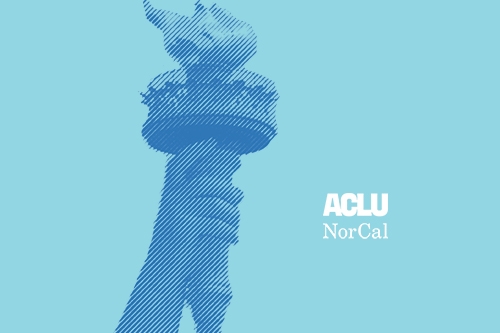Article Media

San Francisco – Today, a coalition of groups advocating for lesbian, gay, bisexual and transgender equality filed a friend-of-the-court brief urging the U.S. Ninth Circuit Court of Appeals to uphold a U.S. District Court decision that rejected a move to vacate the historic August 2010 ruling that invalidated Proposition 8, the 2008 ballot measure that stripped the freedom to marry from same-sex couples in California. The ACLU of Northern California, Lambda Legal, the National Center for Lesbian Rights, Equality California filed the brief in Perry v. Brown in response to an appeal filed last month by Prop 8 Proponents who asked the Ninth Circuit to reverse the District Court ruling.
Proponents contend that now-retired Chief Judge Vaughn Walker should have declined to hear the original case because he is gay, in a long-term relationship, and that his 135-page decision should be invalidated. U.S. District Court Chief Judge James Ware, who was assigned the case after Judge Walker's retirement, denied Proponents' request in June, writing that "the presumption that Judge Walker, by virtue of being in a same-sex relationship, had a desire to be married that rendered him incapable of making an impartial decision, is as warrantless as the presumption that a female judge is incapable of being impartial in a case in which women seek legal relief."
The LGBT equality groups' brief argues that the Proponents' motion closely parallels long-discredited historical attempts to disqualify judges based on their race, sex or religion. The groups contend that the Proponents' argument boils down to the notion that no lesbian, gay or bisexual judge could impartially preside over a case involving the rights of same-sex couples – logic that has been consistently rejected by the courts in similar cases involving race and sex discrimination.
"The Prop 8 supporters say that their motion is not based on Judge Walker's sexual orientation, but instead on the fact that he's been in a long-term relationship with another man. This is a distinction without a difference," explained Elizabeth Gill, Staff Attorney, ACLU of Northern California, "If sexual orientation isn't a basis for recusal, then neither is a relationship with a person of the same sex."
"Here they go again. Prop 8 supporters continue to bang away at the baseless and offensive argument that being gay renders a judge incapable of being impartial," said Jon Davidson, Legal Director of Lambda Legal. "Everyone has constitutional rights, so cases that raise constitutional issues affect the public at large, including judges. But that's no basis for recusal, because otherwise no one could rule on what the Constitution requires. And the notion that being in a same-sex relationship renders a judge unable to interpret the law and uphold his or her sworn duty to rule impartially is insulting to both judges and America's system of justice."
"It is deeply offensive to suggest that a gay judge is incapable of being fair and impartial, or that Judge Walker was unfair to any of the parties in this case," said NCLR Legal Director Shannon Minter. "The same type of arguments have been used in the past to attack judges based on their race, gender, and religion. Courts have rejected those arguments as offensive and insupportable in past cases, and the Ninth Circuit should reject them here too."
"It would undermine public confidence in our judiciary if only heterosexual judges could rule in cases involving the rights of same-sex couples, just as it would undermine confidence in the judiciary if only male judges could rule in cases involving the rights of women," said attorney David Codell, who serves as pro bono counsel for Equality California along with colleagues at Caldwell Leslie & Proctor, PC. "Chief Judge Walker's decision striking down Proposition 8 was based on fair, unbiased evaluation of factual evidence and legal arguments that overwhelmingly led to the conclusion that Proposition 8 violates the federal Constitution."
The case is Perry v. Brown.
Amicus Brief (Nov. 8, 2011)
